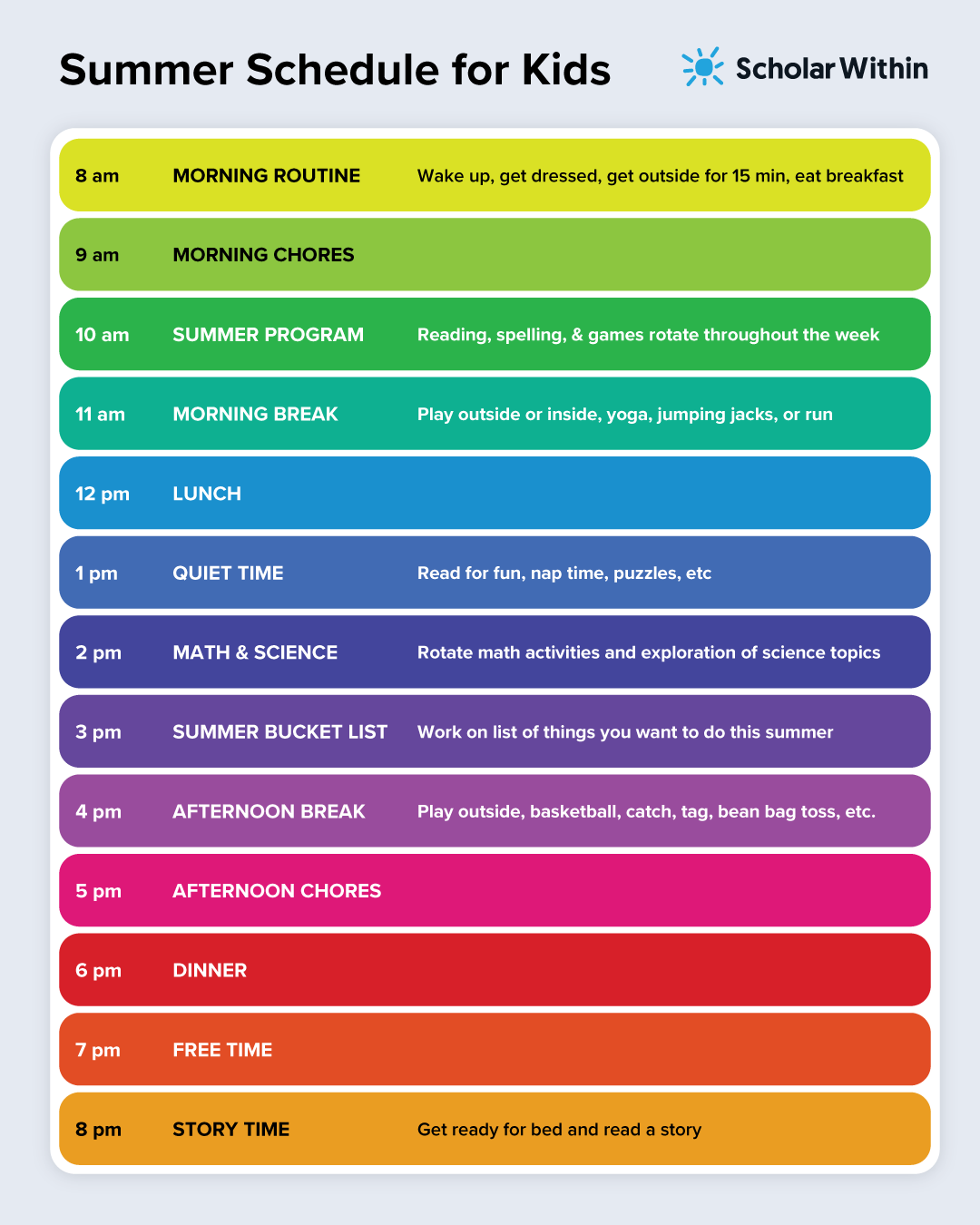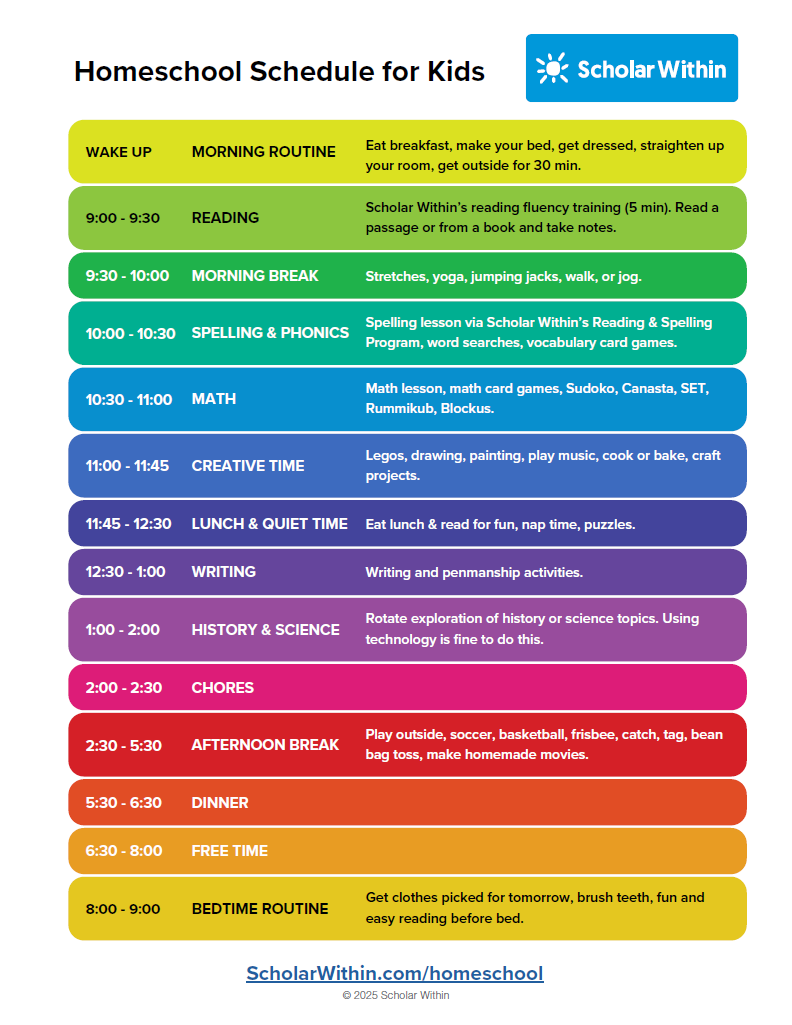
Background Knowledge and Reading Comprehension
Table of Contents
- Overview
- Top 10 Background Knowledge Topics
Everyone Should Know Something About - Background Knowledge Building Activities
- Field Trip Tips
- Favorite Podcasts for Kids
Overview
Background knowledge, reading comprehension, and a train ride. What do they have to do with each other?
Last summer, my grandkids took a train ride to visit us. They thought it would be a fun way to see us, but they had no idea what they would really gain by taking the train.
The act of taking the train gave them so many experiences, from boarding it, eating in the dining car, seeing the sights out the window, and pulling into additional train stations. When they arrived, I shared with them how their Great Grandfather actually built train engines.
All of these varied experiences were added to their factual knowledge base. This trip ultimately improved their reading comprehension skills. Anytime they read about someone taking a train or even other types of transportation, they will be able to relate to it much more because of the train ride they had.
Background knowledge refers to your understanding and awareness of the world. It’s built from experiences, and you make sense of what you read. Background knowledge, also known as factual knowledge, can make the difference from not understanding what you have read to completely comprehending what you have read.
This is why it’s so critical to expose children to build their factual knowledge base from real-life experiences and exploration of topics.
You build background knowledge from life experience, research, hobbies, and more. Having a wide range of interests can help your reading comprehension by drawing comparisons and relationships to ideas, facts, and concepts you already know.

When educators think of strategies to build reading comprehension, they usually reach for activities such as:
- Finding the main idea
- Finding supporting details
- Making graphical representations to assist comprehension and long-term memory
- Answering questions
- Generating questions
- Summarizing what they have read
- Practice using new vocabulary
There is no mention of factual or background knowledge. However, Donna R. Recht, coauthor of “Effect of Prior Knowledge on Good and Poor Readers’ Memory of Text,” states: “Prior knowledge creates a scaffolding for information.” She goes on to state: “For poor readers, the scaffolding allows them to compensate for their generally inefficient recognition of important ideas.”
If you are to be able to actually succeed in any of the above 7 reading comprehension skills, you must have some background knowledge to refer to in order to filter, scaffold, make associations, make sense of, and retain information. In other words, in order to understand, you need a reference point, you need background knowledge. The more background knowledge you have, the easier it is to comprehend.
This video explains the results of Recth’s and Leslie’s study.
Background knowledge can help a poor reader develop into a capable one and a poor writer into a fascinating one. One way to build background knowledge is to understand the 10 basic topic categories and tailor experiences in those areas. Remember, it is quite difficult to find the “main idea” of a reading selection when you don’t really understand most of the ideas written about.
Top 10 Background Knowledge Topics Everyone Should Know Something About
- Animals, Ecology, and Ecosystems
- Folk Stories, Fables, and Fairy Tales
- Classic Children’s Fiction
- Astronomy and Space
- Human Body, Health, and Nutrition
- Engineering Technology
- Historical Fiction
- U.S. History, Culture, and Civics
- Contemporary Realistic Fiction
- Immigration
Building Background Knowledge Activities
If you live in a city and have never been to a farm, you would have difficulty understanding a reading passage about harvesting crops. So, you could build your knowledge by taking a trip to a farm or watching a video about a farm harvesting its crops. From here, you could then draw pictures or visually represent the steps taken during a harvest. Make a model of or collect pictures of types of harvest equipment. Compare the types of equipment from one crop to another. The richer the activities and experiences, the more the student will build and retain factual/background knowledge.
Taking trips, a train ride, visits to a museum, a beach, a lake, or a forest are all ways of building background knowledge.
As mentioned above, using videos can improve factual knowledge. The factual knowledge study reported in Enhancing Students’ Learning of Factual Knowledge concludes that a blended learning approach that utilized Internet video clips improved students’ vocabulary development and showed a significant increase in test scores.
In our reading and spelling programs, we not only include reading passages on background knowledge topics that kids should know something about, but we also include digital field trips and field trip ideas to get your kids out learning from the real world.
Field Trip Tips
One thing to do when you are on a field trip is to be sure to take some pictures. Also, have your kids take some notes while you are there or immediately after the trip. Our program has the perfect storyboard graphic organizers to help you scrapbook, doodle, and take notes of your excursion.
Research has shown time and time again that taking notes helps you remember what you have done and more details than you would have remembered otherwise. Plus, you can make a memory scrapbook of your adventures to review in the future.

Listening to Podcasts Can Improve Your Factual Knowledge
We love listening to podcasts to build our factual knowledge. We love learning about new things! Podcasts can be a great way to learn about something while in the car or around the house. There are podcasts on thousands of topics that can expand your knowledge about specific topics. Some of our favorite podcasts include But Why: A Podcast for Curious Kids and Wow in the World.
For older kids, take a look at Science Friday. You may have caught the show on NPR on a Friday, but check out their website. They have tons of episodes! For the high school and adults, take a listen to Radio Lab. Please note: Radio Lab has some material that may not be suitable for children.
For more great podcasts for kids, take a look at this top 25 podcasts for kids list.
Playing Games Improves Background Knowledge
Additionally, playing vocabulary or word games improves factual knowledge by improving vocabulary. “Vocabulary knowledge could be considered a proxy for a person’s background knowledge.” The Journal of Educational Research, Volume 2, 2009. Playing games can improve a student’s memory of vocabulary, which improves their factual knowledge base, which then improves their comprehension skills.
Alemi (2010, 435) found that word games had a “positive effect on vocabulary development” among the students in her study. Huyen and Nga’s (2003) research found that games (1) create a relaxed environment that helps students learn and recognize words; (2) introduce friendly, competitive activities that energize students and increase active participation; and (3) improve students’ communicative competence through the review and practice of vocabulary.
Vocabulary Games: More than Just Wordplay
For direct instruction and specific activities on improving factual knowledge and vocabulary, be sure to reserve your spot for Scholar Within’s Summer Reading Program. The program integrates the five principles of reading seamlessly with step-by-step activities, games, and video lessons. If you are interested in getting started now, take a look at our reading and spelling program.

Who is Scholar Within?
Scholar Within was founded by learning expert Bonnie Terry, M.Ed., BCET. Bonnie began designing and developing her own custom educational tools when she started her private learning center in the 1990s. Teachers kept asking what she was using with the kids who saw her because of the dramatic improvements that the kids made in school. From there, Bonnie decided to make her materials available to teachers and families worldwide.
Now, Bonnie Terry has turned her materials into a full-service online program that you can follow step-by-step at home, on your schedule. School alone is not enough anymore. Bonnie’s programs boost your kid’s overall learning skills by focusing on improving the auditory, visual, and tactile processing areas of your brain to make it work more efficiently.
Learn more about Scholar Within.



